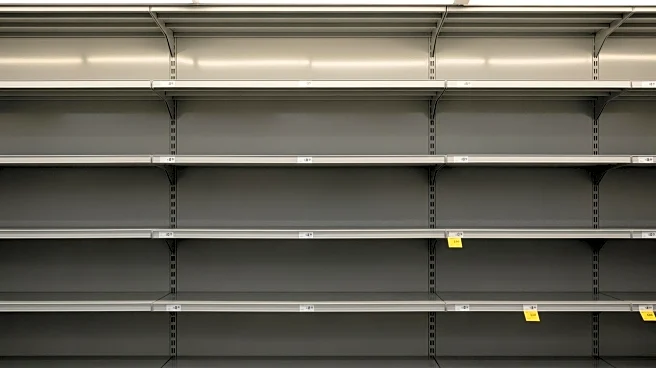What's Happening?
The ongoing government shutdown is significantly affecting federal food assistance programs, particularly the Supplemental Nutrition Assistance Program (SNAP). The disruption in federal aid is expected to have a cascading effect on both households and
the broader economy. SNAP benefits are crucial for many families, and the sudden halt in these benefits is likely to lead to increased food insecurity. Additionally, the economic impact extends beyond individual households, as every dollar spent on SNAP generates approximately $1.54 in economic activity. This multiplier effect means that local businesses, especially grocery stores, could see a decline in sales, further exacerbating economic challenges.
Why It's Important?
The suspension of SNAP benefits due to the government shutdown highlights the vulnerability of low-income families who rely on this assistance for their daily needs. The broader economic implications are also significant, as reduced consumer spending can lead to a slowdown in local economies. Businesses that depend on SNAP recipients as a customer base may experience financial strain, potentially leading to layoffs or closures. This situation underscores the interconnectedness of federal assistance programs and local economic health, emphasizing the need for stable government operations to support both individual and economic well-being.
What's Next?
If the government shutdown continues, the pressure on affected families and businesses is likely to increase. Policymakers may face mounting calls to resolve the shutdown to restore essential services and economic stability. Advocacy groups and community organizations might also step up efforts to provide temporary relief to those impacted. The situation could prompt discussions on the need for contingency plans to protect vulnerable populations during government disruptions.

















